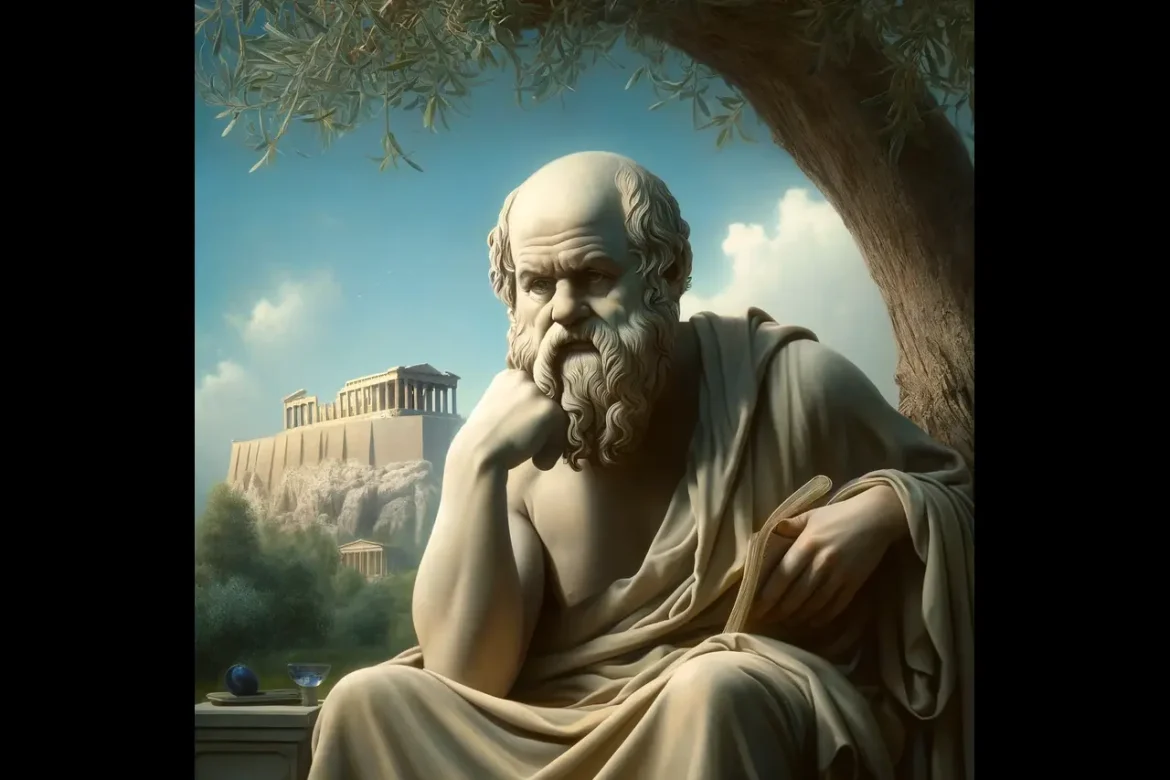Socrates was a classical Greek philosopher who is widely credited as one of the founders of Western philosophy. Born in Athens in the 5th century BC, he is best known for his method of questioning, which he used to challenge the beliefs and assumptions of others in order to arrive at the truth. This method, known as the Socratic method, is still used in philosophy and other fields today as a way of fostering critical thinking and rigorous debate.
One of the key contributions of Socrates to the field of critical thinking was his emphasis on the importance of questioning and self-examination. In many of his dialogues, Socrates can be seen engaging in conversation with others, using a series of probing questions to challenge their assumptions and beliefs. This approach was based on the belief that knowledge and wisdom can only be attained through rigorous self-examination and an honest examination of one’s own beliefs and assumptions.
For Socrates, the pursuit of truth and wisdom was of paramount importance. He believed that the only way to achieve true knowledge was to constantly question and challenge one’s own beliefs and assumptions, as well as the beliefs and assumptions of others. This approach is what sets Socrates apart from other philosophers of his time, as he was not content to simply accept the beliefs and ideas of others without subjecting them to critical scrutiny.
Socrates’ emphasis on critical thinking also extended to the realm of morality and ethics. In many of his dialogues, he can be seen engaging in discussions about the nature of justice, virtue, and other moral concepts. Through his questioning and critical examination of these ideas, Socrates sought to arrive at a deeper understanding of what it means to be a good and just person.
One of the most famous examples of Socrates’ method of questioning can be found in his dialogue with the character of Euthyphro in Plato’s dialogue of the same name. In this dialogue, Socrates engages in a conversation with Euthyphro, who is a self-proclaimed expert on matters of piety and morality. However, as the conversation progresses, it becomes clear that Euthyphro is unable to provide a clear and consistent definition of piety, despite his confident
assertions to the contrary. Through his questioning, Socrates is able to reveal the contradictions and inconsistencies in Euthyphro’s thinking, ultimately demonstrating the importance of critical thinking and self-examination in the pursuit of truth and wisdom.
Socrates’ method of questioning was not without its detractors, however. Some of his contemporaries saw his approach as confrontational and threatening, and he was eventually charged with corrupting the youth of Athens and sentenced to death. Despite this, his legacy lives on as one of the founders of Western philosophy and as a model for the importance of critical thinking and self-examination.
In many ways, Socrates’ approach to philosophy was ahead of its time. His emphasis on the importance of questioning and self-examination is something that is often missing in the world today, where people are often content to simply accept the beliefs and ideas of others without subjecting them to critical scrutiny. By challenging the assumptions and beliefs of others and encouraging them to question their own beliefs, Socrates was able to foster a spirit of inquiry and critical thinking that is still relevant and valuable today.
If this topic finds your interest you I suggest a great read which highlights the key moments in socrates life from his trial to his death and includes philosophical debates about the meaning of law, life love and more. Read more in the book.
Stay up to date with Ambient Thinkers on our website, or follow us on youtube

